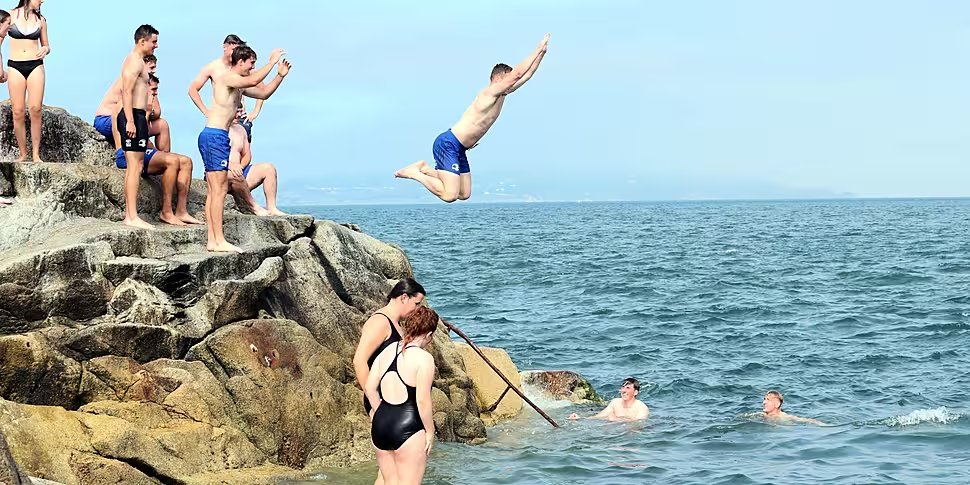Ireland is now far more likely to regularly experience record-high temperatures, a new study from Maynooth University has warned.
The study warns that the country must prepare for the impact of heatwaves and high temperatures occurring much more regularly in the coming years.
Currently, Ireland’s highest ever recorded temperature was the sweltering 33.5°C clocked in Kilkenny in 1887.
The report, led by Professor Andrew Parnell of the Hamilton Institute at Maynooth University, warns that the record is likely to be broken in the coming years.
It finds that climate change has reduced the likelihood of Ireland experiencing a 34°C day from a one in 1,588-year event to something that could happen once every 27.5 years.
The study also notes that 33C temperatures, which were a once-in-182 year event back in 1942, are now likely to be seen every 8.7 years.
In 2022, Dublin recorded its hottest ever temperature when the mercury hit 33°C - beating the previous record of 32°C set in 2006.
 People queuing for ice cream from an ice cream van on the beach at Portmarnock in Dublin, Ireland
People queuing for ice cream from an ice cream van on the beach at Portmarnock in Dublin, IrelandRecord temperatures are not confined to Ireland and the EU's Copernicus Climate Change Service has concluded May this year was the warmest in recorded history.
Green Party leader Eamon Ryan described it as a “truly frightening” trend and said he is increasingly concerned about the possibility of so-called ‘runaway climate change’.
“The concern scientists have is that by going over that limit, you risk some tipping points where you start to get runaway climate change,” he said.
“In other words, maybe the ice sheets reduce in a way that allows further heat to be reflected off and that begins a feedback loop that you can’t stop.”
World leaders agreed at COP26 in Glasgow three years ago they would try to cap temperatures rises to 1.5°C above pre-industrial levels.
Every additional 0.1°C rise significantly increases the chance of extreme weather events but scientists fear the earth might hit the 1.5°C figure this year.
Main image: Swimming at the Forty Foot in Dublin. Photo: Sasko Lazarov/RollingNews.ie









